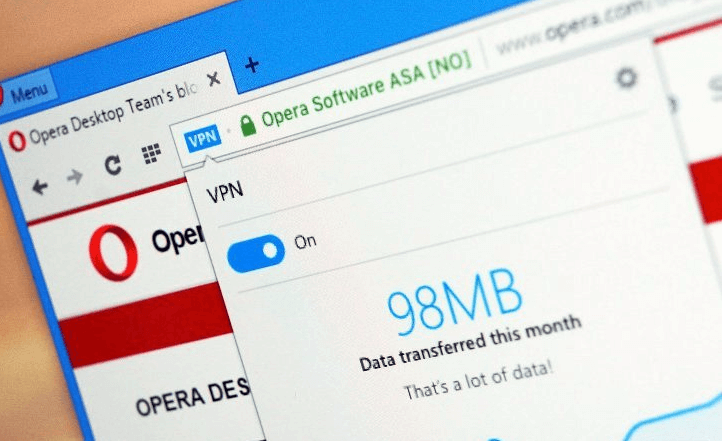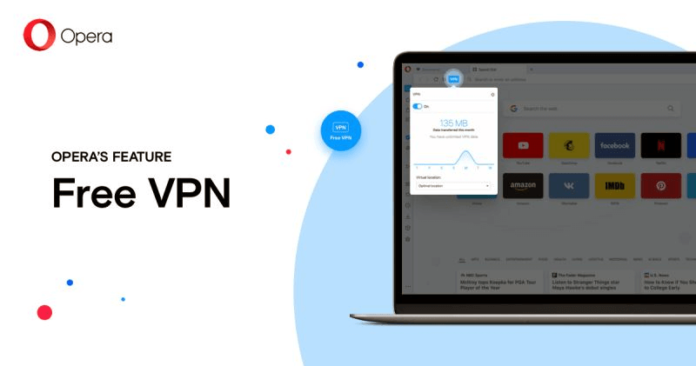Table of Contents
Think again if you use the free VPN offered in the Opera browser for convenience. Opera VPN is definitely not a secure VPN. Yes, it’s free. Yes, it’s convenient; you can connect with one click. But it comes at a cost regarding security, privacy, and anonymity. Would you wear a bulletproof vest that is of questionable security?
The point is not just to be able to access blocked sites but also to keep your activities and identity private. Accessing censored sites is not a crime today, but what about tomorrow? How much data do you think your one year of internet activity takes up? When the time comes, everything can be found with a quick search in the database. It doesn’t even have to be classified as a crime; there are things called security checks and archival research in our lives.
So why is Opera VPN not secure?
First, Opera VPN is not a trustworthy VPN but a glorified proxy. Only Opera calls it a VPN. Two critical security features are the VPN protocol (OpenVPN, WireGuard, etc.) and the encryption method (AES-256, AES-128, etc.). They are critical because they are what hide your internet activity. Every VPN provider advertises them on their website in big letters. However, Opera has never disclosed its protocol and encryption algorithm, not even in the fine print deep in its website.
According to experts, this means that Opera does not use a VPN protocol at all and uses TLS as its encryption method, a low-level encryption not used in the industry and can be cracked (source). I agree with this assessment because if it makes so much sense to explain and advertise these two things in two words, and they don’t, then there is a problem.
Second, the issue of log keeping
Opera states in the VPN service section of its privacy policy that it does not log your browsing activity or IP address. That sounds great. However, the browser section states that it collects your device ID, hardware information, location, and other personal information and has the right to transfer it to other countries (source). It also allows third-party companies to collect and process your data (there is a list of them in the source).
This makes perfect sense from Opera’s point of view because Opera Browser is neither a paid product nor a product of a foundation/volunteer group like Firefox. So, as a commercial company, it needs to make money somehow, and it does so by selling user data.
Third, it had a data breach that seriously damaged its credibility. In 2016, it had the data of 1.7 million Opera Sync users stolen. The data included at least usernames and hashed passwords.
Finally, another indication that they don’t take security seriously is that the “bypass VPN on search engines” feature is selected by default. This means your searches are visible in Google, even though you think you have the VPN turned on.
Since reliability is a critical issue with VPNs, we can ignore that they are super slow.

To sum up:
Your data is accessible to those on your Wi-Fi network and your internet service provider (and therefore the government) due to the lack of a VPN protocol and weak encryption. It is also accessible to Opera itself and third-party companies in any country, thanks to the privacy policy you have accepted.
In conclusion, Opera VPN is unfortunately unsuitable for those prioritizing security, privacy, and anonymity.
Additional reasons why Opera VPN is not secure:
- Slowness: Opera VPN can be slower than other VPNs.
- Limited number of servers: Opera VPN’s server network is smaller than that of other VPNs.
- Paid subscription: Some advanced features of Opera VPN are only available with a paid subscription.
More secure VPN options:
- ExpressVPN
- NordVPN
- CyberGhost
- PrivateVPN
- Surfshark
These VPNs offer security and privacy-focused features such as strong encryption, secure protocols, a no-logs policy, and an extensive server network.
When choosing a VPN:
- Security protocols (OpenVPN, WireGuard, etc.)
- Encryption algorithm (AES-256, etc.)
- No-logs policy
- Server network
- Speed
- Price
It is essential to consider factors such as these.


